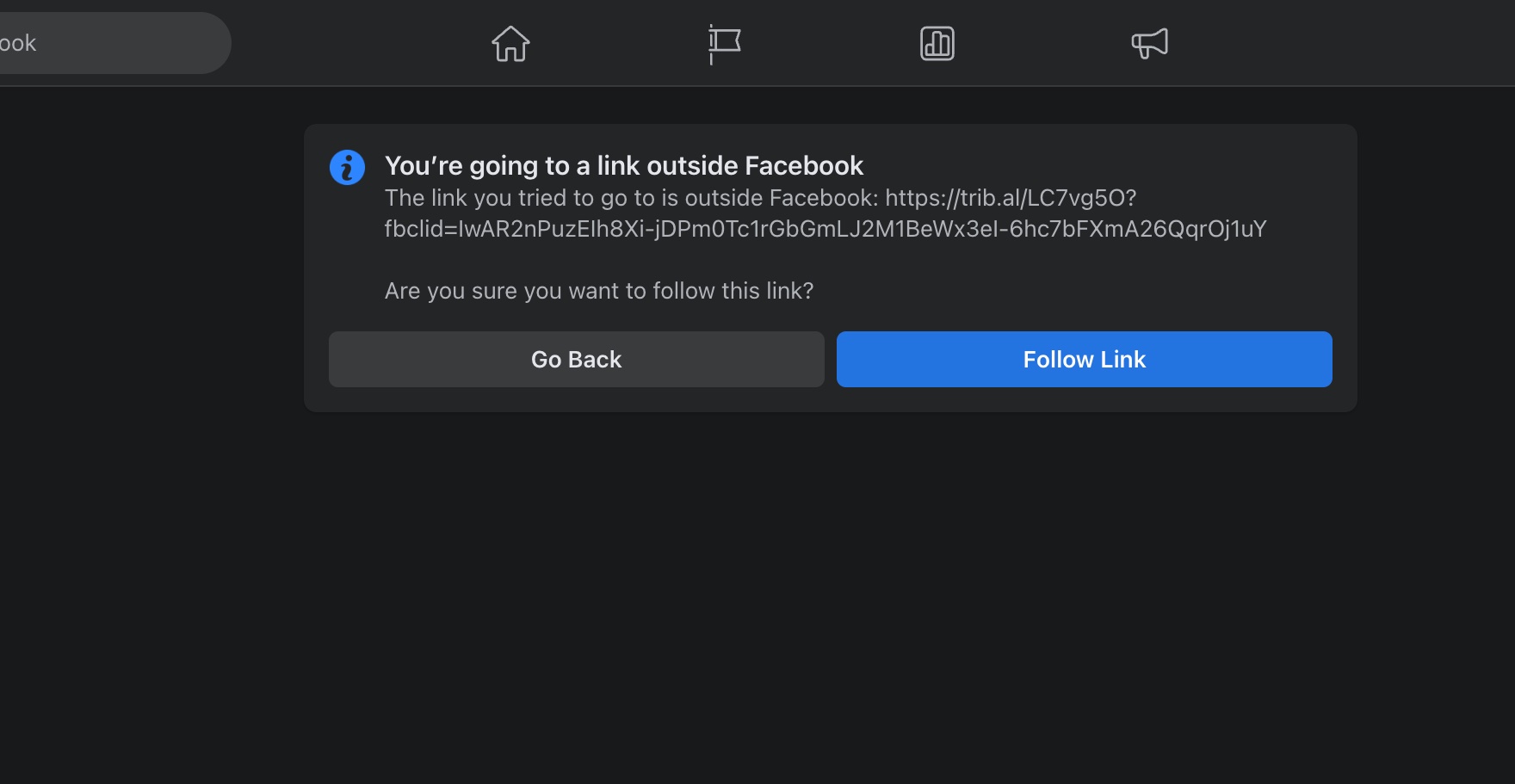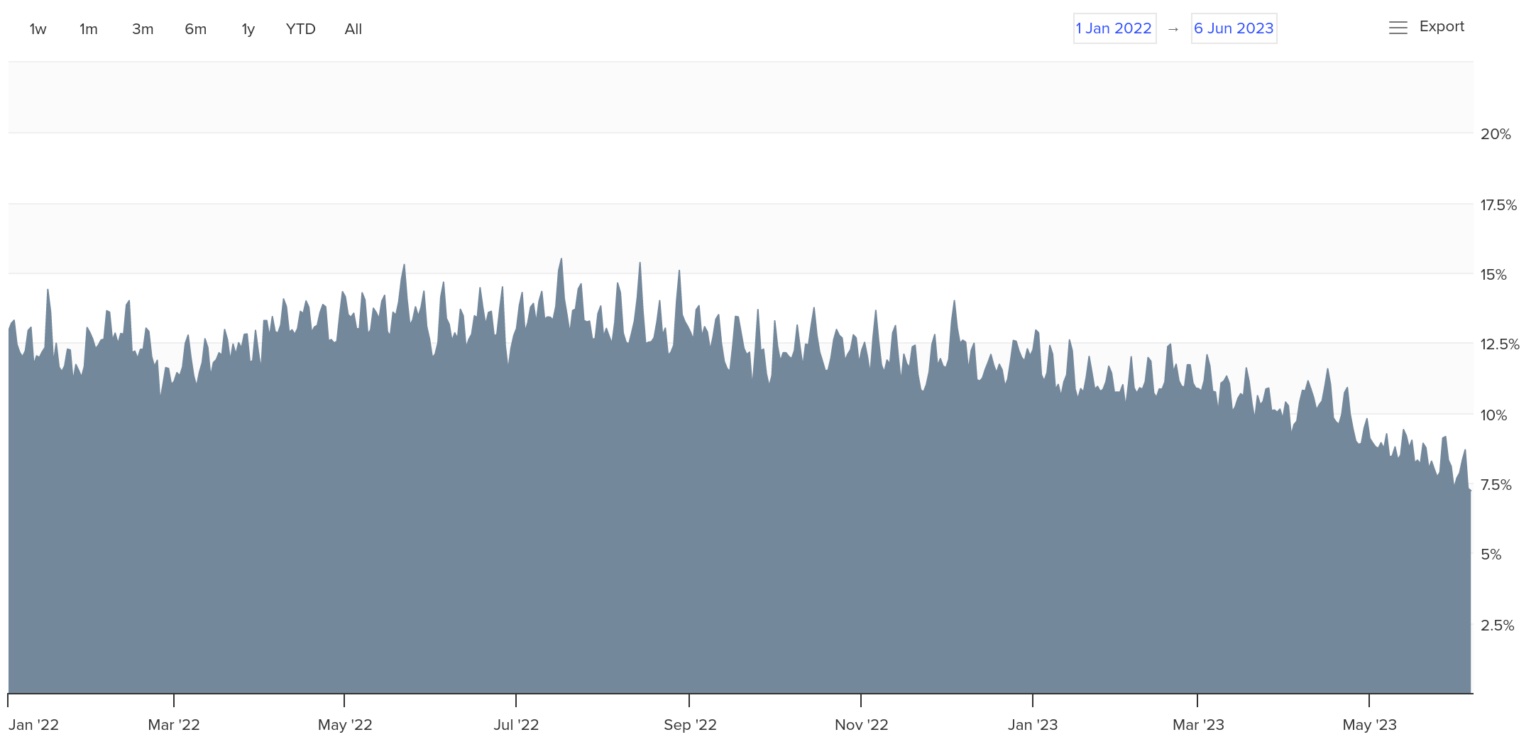Facebook is now treating content links like malware — and that's not okay
A dire and needless warning

Facebook has gone to new lengths in its push to keep users on its platform at all costs. And content publishers are now being treated as if they are peddling malware.
I recently came across the below warning when trying to click out to an article on Tom's Guide's Facebook page, and the level of warning looks pretty dire.

If I were an everyday Facebook user, I would immediately question my decision to click that link. The bolded text says "You're going to a link outside Facebook," which to me feels like something you shouldn't do in the context of this warning.
Then there's the two prominent buttons. One is Go Back, which might as well read Go Back to Safety. And there's Follow Link. At least Facebook highlights that button. But ultimately I would not be shocked if many users just decide to Go Back.
I asked Facebook to comment on this external link alert and have yet to receive a response.
How do I know people are alarmed by this warning? Lots of publishers are feeling the pain from what appears to be a new algorithm change that is de-prioritizing content publisher links.
A report from Echobox confirms that major publications such as Buzzfeed in the U.S. and Reach in the U.K. have been impacted by falling social page views. The report includes a Social Media Index (SMI) that shows the percentage of traffic that originates from social media platforms. That overall number has dipped from a high of 15% in the middle of 2022 to just 7% to 8% in early June 2023. That's a decline of about 50%.

Echobox notes that these types of patterns tend to be cyclical, but there's something very different about posting this type of alert to those who willfully click on external links. It's a very transparent attempt to scare Facebook users into thinking that going outside of the platform is unsafe.
The background to all of this is that Facebook is rejecting calls from politicians and publishers for parent company Meta to pay for the content that is engaging its users. Meta has gone as far to block news content in Australia, and it has tested doing the same in Canada. Facebook reversed its stance in Australia after the government there made some media code amendments.
Now Meta says it will block all news articles in California if that state passes a bill designed to funnel money from tech platforms like Facebook to media organizations. The California Journalism Preservation Act would tax advertising profits social platforms make from distributing news articles. The measure stipulates that about 70% of the money collected from the "usage fee" would go to support newsrooms.
As Echobox also reports, Facebook is also trying to pivot to video by promoting more reels in an effort to better compete with TikTok.
The editor in chief of Insider shared a pretty blunt assessment of the situation, as reported by Gizmodo, in a company-wide email. "Traffic is down, Subs are down. Video views are down....I'm talking about a changing reading and watching environment where Facebook is no longer sharing links."
Look, Facebook has every right to do what it wants with its platform, including prioritizing video over text links. But installing an additional hurdle like this — one that is explicitly designed to get people to second guess reading an article they find interesting — is a step too far.
More from Tom's Guide
Sign up to get the BEST of Tom's Guide direct to your inbox.
Get instant access to breaking news, the hottest reviews, great deals and helpful tips.
Mark Spoonauer is the global editor in chief of Tom's Guide and has covered technology for over 20 years. In addition to overseeing the direction of Tom's Guide, Mark specializes in covering all things mobile, having reviewed dozens of smartphones and other gadgets. He has spoken at key industry events and appears regularly on TV to discuss the latest trends, including Cheddar, Fox Business and other outlets. Mark was previously editor in chief of Laptop Mag, and his work has appeared in Wired, Popular Science and Inc. Follow him on Twitter at @mspoonauer.

